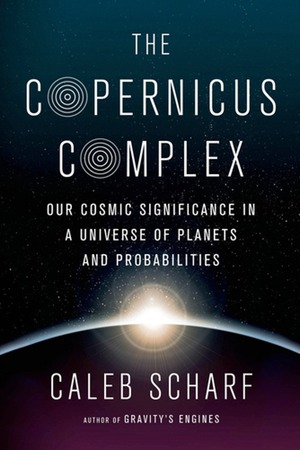Review: The Copernicus Complexby Jeff Foust
|
| “Having correctly displaced the Earth from the center of things, most astronomers took this averageness as a new gospel,” he writes. |
That conundrum is at the heart of The Copernicus Complex, by astrobiologist and science writer Caleb Scharf. In the book, he takes on two competing beliefs: the “Copernican principle” that, for centuries, has argued that the Earth has no special place in the Universe; and the “anthropic principle” that argues that the universe is fine-tuned to support life. Scharf, in the book, argues for a compromise position between the two.
Scharf devotes much of the book to tearing down the Copernican principle. For centuries, he notes, astronomers have worked to argue that the Earth isn’t particularly special: neither it, nor the Sun, nor the Milky Way galaxy, are the center of the universe. “Having correctly displaced the Earth from the center of things, most astronomers took this averageness as a new gospel,” he writes.
For example, he argues that solar systems like the Earth are not common, based on what’s been discovered in the last two decades. Many have “hot Jupiters” orbiting close to their stars, or worlds in eccentric orbits, that would appear to rule out the presence of Earth-like worlds. He also devotes some discussion to the challenges in understanding just how our own solar system formed.
However, Scharf is not willing to join proponents of the anthropic principle, or otherwise conclude that life, intelligent or otherwise, is rare. He instead offers an alternative, which he calls the “cosmo-chaotic principle”: life, in that concept, “will always inhabit the border or interface between zones defined by such characteristics as energy, location, scale, time, order and disorder.” It’s not as elegant as the Copernican or anthropic principles, but does suggest that the conditions for forming life are complex, but not necessarily unique.
“So are we unusual or not?” Scharf asks near the end of The Copernicus Complex, an enlightening read even for those people familiar with many of the astronomical and astrobiological topics discussed within. He is smart enough to acknowledge that we don’t know, rather than hazard a guess one way or the other. “But we are much, much closer to an answer than we have ever been in the history of the human species; we are on the cusp of knowing.”
